
Before Jesus ascended, the gathered disciples asked Jesus if he was about to establish his Kingdom. His response? The ultimate fulfillment would come at an unknown time in the future. In the meantime, his followers needed to wait for the Holy Spirit to have the power to be Christ-witnesses to the ends of the earth (Acts 1:6-7), which Jesus previously taught would happen before his return (Matthew 24:14).
So they waited. On the Day of Pentecost, the Holy Spirit fell upon the disciples, Peter preached about Jesus (being a witness), and thousands were saved. This epic moment birthed the Church, the Bride of Christ, a radical change establishing the heavenly family on earth to live in righteousness and power.
While this event happened two thousand years ago, it isn’t that distant from us. We live in the same family reality, and reading through the account in Acts 2, we can learn from the people involved and take lessons for our lives today.
Here are six lessons from the characters at Pentecost.
Photo Credit: ©Getty/Shuang Paul Wang
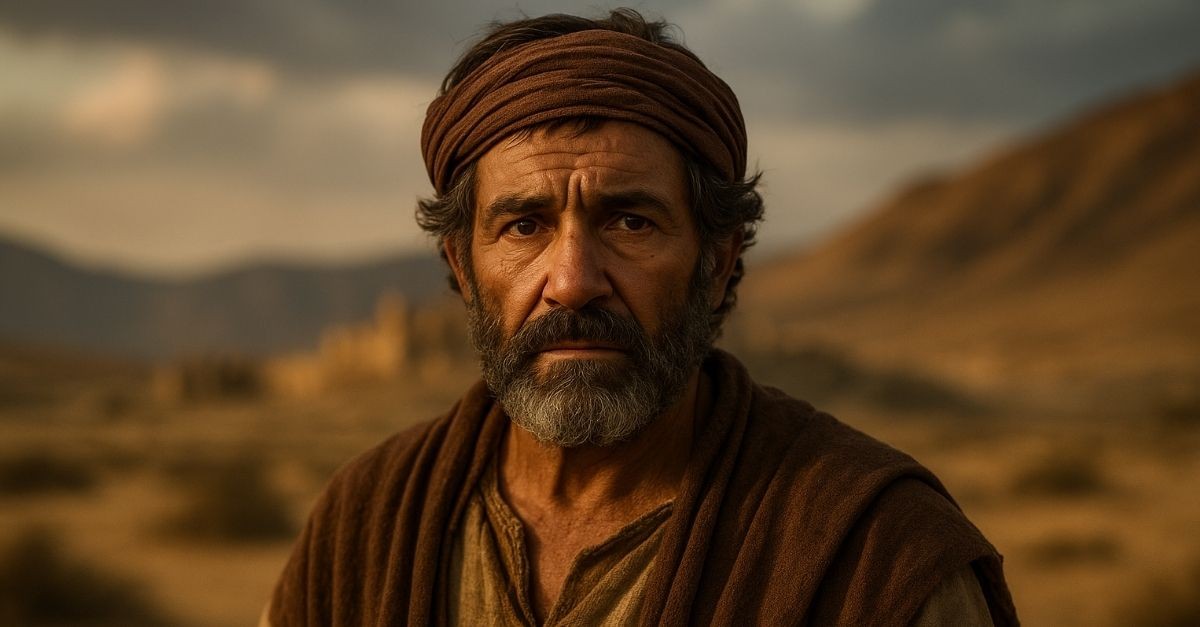
1. How God Turned Peter’s Lowest Moment into His Boldest Message
Besides the Holy Spirit, Peter stands as the main character on the Day of Pentecost, and his inclusion marks an important lesson.
Only a few weeks before Pentecost, at the Passover, Peter had denied Jesus the night before the crucifixion, at Christ’s low point. Peter denied Jesus three times, all from fear, even swearing he didn’t know the Son of God. The disciple had promised to follow Jesus to the death, and here he had failed his word and the God he loved. However, Jesus didn’t reject Peter for this. After the resurrection, Jesus restored Peter with grace, asking him three times, “Do you love me?” and reminding Peter of his spiritual call.
Once the Holy Spirit fell at Pentecost, Peter stood before a massive crowd in Jerusalem, without fear, preaching the truth of Jesus with boldness. His Spirit-filled message reached many, and three thousand repented in faith unto Christ.
Failure doesn’t disqualify us. If so, we’ve all failed, so none would be good enough. God redeems broken people, and he shares his Spirit to empower them for his purposes. Peter’s denial became a testimony to God’s transformation by the Spirit. Peter acts like a different man because God’s Spirit enabled him to. God didn’t only forgive Peter. He once again used him.
God does the same with each of us. Failure doesn’t have to be the end of the story, and can’t be when we turn to God. He not only forgives and accepts, but he restores our purpose.
Photo Credit: AI via Chat GPT
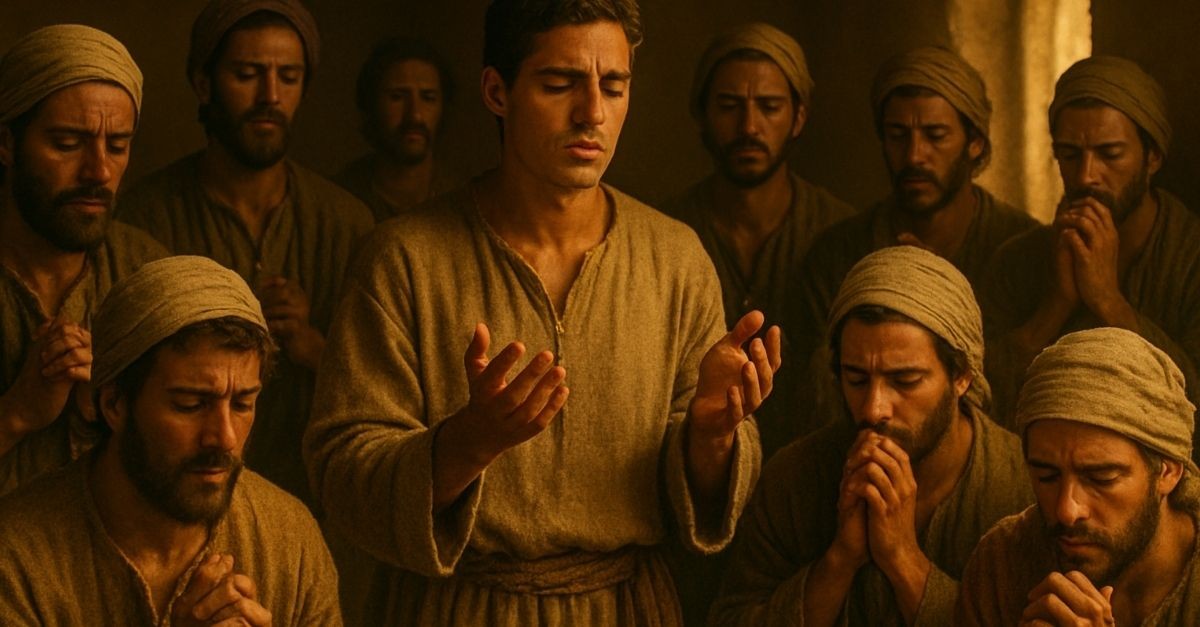
2. The Disciples Waited, Prayed, and United Until God Moved in Power
After Jesus’ resurrection, he taught for weeks on the coming Kingdom of God, and when it came time to ascend, he instructed them to stay in Jerusalem and wait for the promise of the Holy Spirit. The disciples didn’t fully understand what would happen, but their actions teach us important lessons.
First, they obeyed. They didn’t strategize a new ministry launch or organize an evangelistic program. They waited. For ten days, they gathered together in the upper room and devoted themselves to prayer.
Second, they didn’t wait to do their own thing. The disciples prayed into the promise ahead. In faith, they didn’t take it for granted but interceded during the wait. Their “wait” was hopeful, active in prayer.
Third, they remained together, “in one accord” (Acts 2:1). The author of Acts makes their unity central to the waiting. They didn’t go home to wait but met with their new spiritual family, the followers of Jesus.
These principles, waiting on God to move in obedience, prayer, and unity, should teach us how all effective ministry begins. The world tempts us to act fast and in our own strength, but the disciples remained responsive and obedient to Jesus, true followers, even after his resurrection. In this, they trusted God’s power, not their own, and their patience with unified intercession brought a power that revolutionized the world.
God honors those who wait in community and faith. When we obey and pray instead of doing our own thing, we make room for the Holy Spirit to work miracles through us in ways beyond our imagination, bringing God alone glory.
Photo Credit: AI via Chat GPT
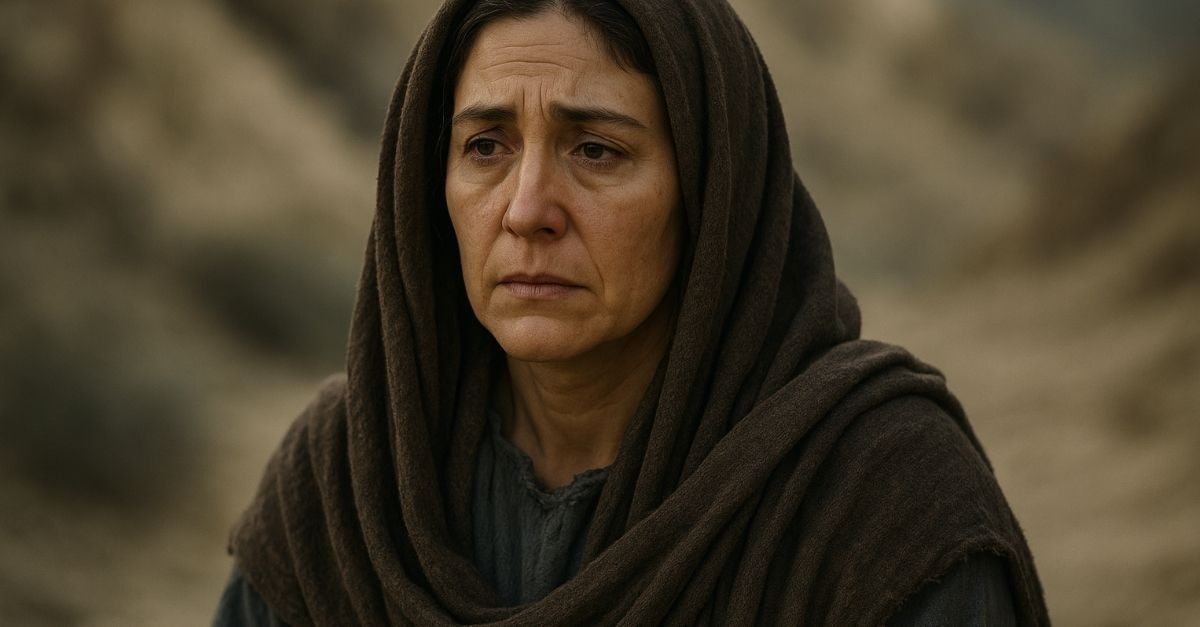
3. Mary Took Her Place Among the Disciples
Mary, the mother of Jesus, offers us a silent but important lesson at Pentecost. We remember her easily for her role in Jesus’ birth, and she appears later in the Gospels, as well, especially at the cross. While Acts 2 doesn’t mention her, she remained faithful as a disciple of her son, Jesus, long after his death and resurrection. She didn’t seek a place of leadership or honor, taking pride in her role. Neither did she hide away like her time for God was over. Mary remained with the disciples, prayed with them, and waited with them for the Holy Spirit. She needed him, too.
Few would have criticized Mary for stepping back in grief or feeling like her work was done. She had fulfilled the call of God as the mother of the Messiah. Since she stayed with John, an adopted-type relationship (John 19:26-27), she likely joined them in the upper room and on Solomon’s Porch, obeying Christ with them.
Her presence alone provided the testimony of the miracle child, bearing firsthand witness of Jesus being fully God and fully man. At Pentecost, she participated in the birth of the Church like she did with his birth, first miracle, ministry, and death.
Our role in God’s story doesn’t end with a single calling. Faithfulness continues throughout life and different seasons. We don’t have to demand attention or position, despite who we’ve been or what we’ve done. We can stand in unity with the Body of Christ and pray into the future promise of God, all while bearing witness to Christ’s unique work within us.
Photo Credit: AI via Chat GPT
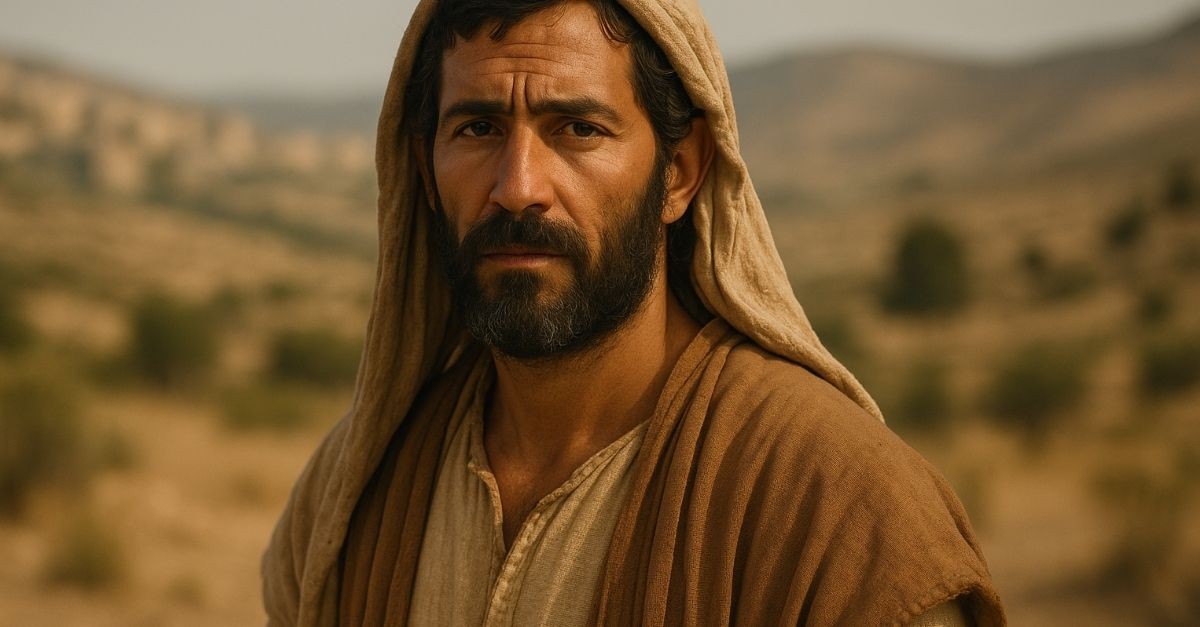
4. Matthias Was Faithful When God Called
In the Bible, a character often appears. Yet they had a life before, and God was at work in and through them in the hidden moments.
Before Pentecost, the apostles felt led to assign a twelfth one, since Judas had betrayed Jesus and committed suicide. In Acts 1, we’re introduced to Matthias for the first time. The Gospels don’t mention him, yet the disciples put him forth as one of the candidates since he followed Jesus from the beginning through the ascension. He stuck it out through the ministry’s hard times with the rest. Matthias stayed faithful even though he didn’t get much recognition.
With the candidates gathered, the apostles prayed for God’s will. There wasn’t a campaign or an election. Just as Jesus chose the original twelve, the disciples trusted God to choose this one. They cast lots, and it fell to Matthias. He then stepped into leadership to serve the burgeoning church.
God chooses leaders not due to popularity or outward charisma. The world does that. The Father honors those who quietly and faithfully walk with him without the fame. We don’t need a platform to have a kingdom impact. Recognition doesn’t mean we have purpose. God calls, sanctifies, grows, and appoints the right people for the right time. Like Matthias, God prepares us for moments when he will use us for his glory.
Photo Credit: AI via Chat GPT
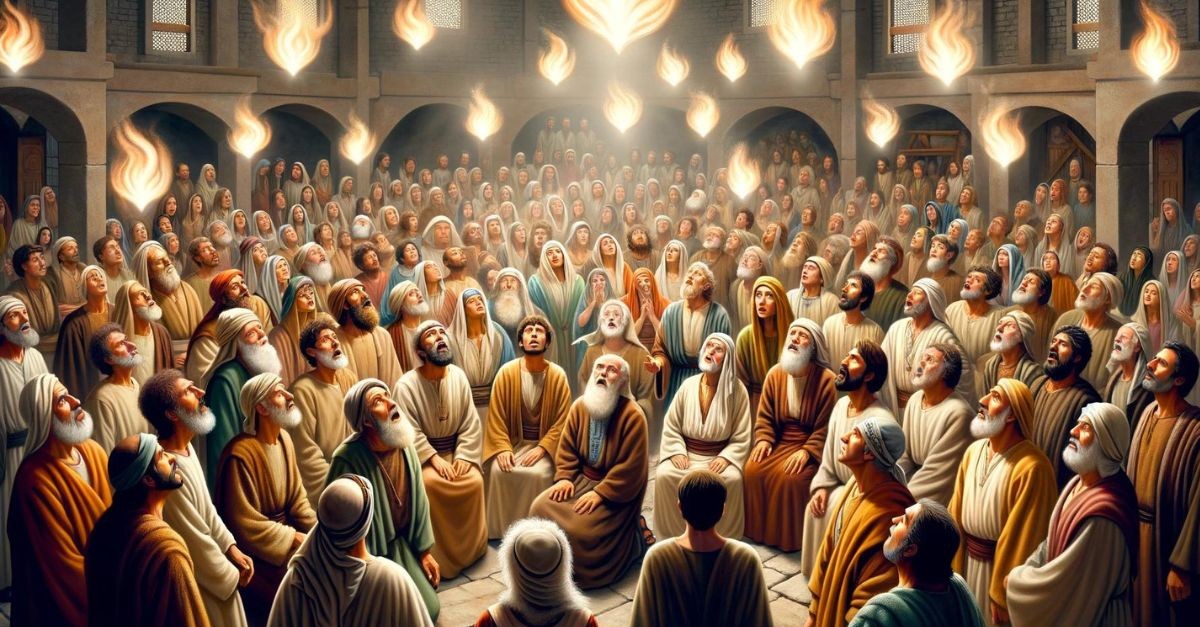
5. The Crowd at Pentecost Shows What Happens When God Moves
At Pentecost, the crowd also teaches us an important lesson. Not only do we wait on the move of God, but we must also make sure not to miss it when he does, even though it might appear strange and confusing.
When the Holy Spirit filled the disciples, they started speaking in other languages. Jews from around the Roman Empire had gathered in Jerusalem for Pentecost, one of the three festivals the Jews were required to celebrate at the Temple. These people spoke different languages but heard the disciples declare the glory of God in their home tongue. Amazed, many wondered what it meant. Some mocked and thought the disciples were drunk.
When God moves, many won’t understand. God’s ways aren’t like ours. Some people hunger for truth, and others explain it away or mock it. But many worked through the confusion to stay and listen to Peter’s Spirit-filled message. The crowd heard the truth of Jesus’ life, death, and resurrection. The crowd responded, wondering what they could do. Peter offered salvation through repentance to Jesus. Thousands were baptized that day.
God still moves today, in small and big ways. When he does, we should endeavor not to dismiss or miss it when it usurps our expectations. The Spirit transcends our ways and works to bring glory to God, not humanity. If we stay open and sensitive to God, we might witness the very thing our hearts long for.
Photo Credit: Image created using AI technology and subsequently edited and reviewed by our editorial team.

6. God’s Promise Came True Right on Time
One character was both present and not at Pentecost.
Centuries before Pentecost, Joel prophesied how God would pour out his Spirit on all people: sons and daughters would prophesy, old men would dream dreams, and young men would see visions (Joel 2:28). When Joel prophesied, Israel faced judgment from God for their idolatry and sin. God offered repentance and hope. After judgment, God would restore and dwell with his people in a new, powerful way.
When the Holy Spirit fell at Pentecost, Peter quoted Joel’s words to the crowd. Peter connected the fulfillment with the previous promise, made hundreds of years in the past. As strange as it seemed in the moment, the Spirit outpouring wasn’t some new idea but the realization of God’s promise. What Joel saw came to life years later. The very Spirit of God now resided within those who believe in Jesus.
Joel reminds us to speak God’s words, be bold and true, even though we may not see the fulfillment of them in our lifetime. God’s word doesn’t return empty; it always accomplishes what God intends. The Lord doesn’t forget or abandon his promises. The timing may take a long time, but the Father remains faithful.
Further, Joel reminds us how God’s promises are for all people, in Christ, not only a select few or those of a race or status. Every Christian has been empowered with the same Spirit, revealing a generous God out to bring life to any who would believe.
Photo Credit:©Unsplash/Ian Dibbern

Originally published Friday, 06 June 2025.
